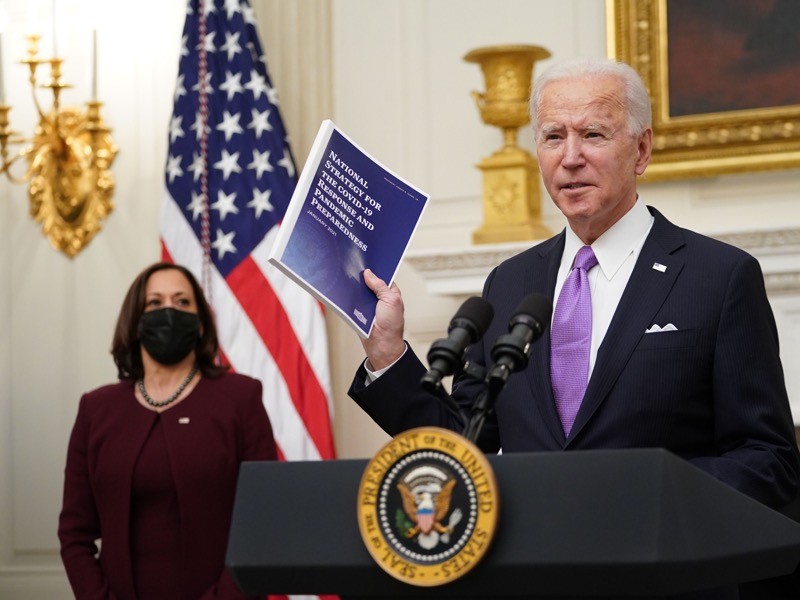President Joe Biden said that US will be working with the WHO-backed COVAX facility and other partners for equitable distribution of around 80 million Covid19 vaccines. The vaccines would be provided from its stockpiles in line with Science and public health data gathered from around the world. Biden is making good on his promise of making US an arsenal of the coronavirus vaccine-shots which are authorized by the FDA.
This gesture comes along with a clear intent of the US administration to augment & bolster its vaccine manufacturing capacities. The administration led by Joe Biden would be coordinating with the democracies around the world for a multilateral-effort in sharing of vaccines. In this regard, the POTUS is expected to announce the progress in the G-7 summit scheduled to be held in June, hosted by UK. On Monday, Biden had announced that US will share 20 million doses from its surplus stocks of the Pfizer, Moderna and Johnson & Johson vaccines by the June-end, which will be in addition to an earlier US commitment to share 60 million doses of AstraZeneca vaccines.
Also See: New mutants of Coronavirus
The vaccine diplomacy and cooperation would allow US manufacturers to hold or grow their share of the global market for vaccines, as signaled by Biden. This would allow the vaccine supply-chains to become an engine for creation of American jobs. Biden had cautioned that American contributions alone would not be able to resolve the crisis.
It is the first time that US administration has spoken officially about sharing of the vaccines that are authorized for use in the country. This move stems from the belief of Biden administration that it will have taken delivery of enough doses to protect everyone in the US by June.
Also Read: Issues faced by India in dealing with Covid 19 resurge- Is it too late to contain the Second Wave
The announcement by US came as India is reeling under the onslaught of the second wave of Covid 19 pandemic. On the world platform, as part of vaccine diplomacy, India had supplied around 60 million doses of vaccines to around 70 countries, and is now reeling under vaccine deficiency. In this context of making vaccines available for a larger number of people around the world, WHO has reminded Serum Institute of India of its commitment to Covax initiative. WHO chief Tedros Adhanom Ghebreyesus has said that once the devastating Covid-19 outbreak, i.e. the second wave in India recedes, the SII will need to “get back on track and catch up” on its delivery commitments to COVAX, the global initiative to supply coronavirus vaccines to nations around the world.
Also Read: Trends in Foreign Policy of post-Cold-War US -where Joe Biden might fit in
What is Covax
Covax, with which US would be working to share the vaccines with the world, is one of three pillars of the Access to Covid-19 Tools (ACT) Accelerator. The ACT was launched in April by the World Health Organization (WHO), the European Commission and France in response to the Coronavirus pandemic. Covax was designed to ensure that people in all corners of the world will get access to Covid -19 vaccines once they are available, regardless of their wealth.
COVAX will achieve this by acting as a platform that supports the research, development and manufacturing of a wide range of Covid-19 vaccine candidates, and negotiate their pricing. Covax approach is coordinated by Gavi, the Vaccine Alliance, the Coalition for Epidemic Preparedness Innovations (CEPI) and the WHO.
GAVI, (Global Alliance for Vaccines and Immunization) is a global health partnership, and has an observer status at the World Health Assembly, a forum through which the World Health Organization (WHO) is governed by its 194 member states.
As a public–private global health partnership with the goal of increasing access to immunization in poor countries, GAVI brings together developing countries, donor governments, the World Health Organization, UNICEF, the World Bank, & the vaccine industry in both industrialized and developing countries. It also brings onboard the research and technical agencies, civil society, the Bill & Melinda Gates Foundation, and other private philanthropists to expand the vaccine outreach.





